So often on these warm summer evenings we are confronted with a thick haze obscuring the distant views - we can often guess when this is going to happen and the forecasts are pretty good when it comes to air clarity, but it wouldn't stop us going out even if it was supposed to be horrific. But I often wonder if it really is a bad thing? When the sun is higher in the sky during the first part of the golden hour then I can only agree with the general consensus that it's a horrible thing... contrast is lost, the colour gets blurred into the general whitewash of the photograph and it's difficult to process back to how you saw it. But is it always bad?
I'll begin with something from a little while before sunset - this view out over lower Wharfedale. The first thing you always wonder, and get told endlessly about, is whether or not a polarising filter will help things. This was especially true on this occasion when I wanted to pull every bit of colour possible out of the late blooming heather... so I tried both to see the difference.
It's a close call... you can hardly even see the difference (not hard to guess which is which!)... and this was after much twisting of the filter to get the optimal effect. So this is my first point, polarisers so often do very little in such situations. Mine hardly ever comes out of the bag unless it's wet and the ground extra reflective, which may be controversial amongst landscape people!
The other main problem I have with haze is knowing just where the sun ends. It's okay to let the centre of the sun blow out entirely, it's so bright it's inevitable, but it's much more difficult to find a smooth transition from blow-out to the surrounding sky and even more difficult to decide just where this transition is. As you'll see in the later photo, this is made much easier as the sun gets lower in the sky, and is often much easier in less hazy conditions - but the haze tends to blur the brightness of the sun to an arbitrary extent. In the end I took a couple of exposures to blend together - but when merging them it's always difficult to know just what weight to give to each layer - our eyes adjust so naturally but the camera simply does not, and cannot.
The other main problem I have with haze is knowing just where the sun ends. It's okay to let the centre of the sun blow out entirely, it's so bright it's inevitable, but it's much more difficult to find a smooth transition from blow-out to the surrounding sky and even more difficult to decide just where this transition is. As you'll see in the later photo, this is made much easier as the sun gets lower in the sky, and is often much easier in less hazy conditions - but the haze tends to blur the brightness of the sun to an arbitrary extent. In the end I took a couple of exposures to blend together - but when merging them it's always difficult to know just what weight to give to each layer - our eyes adjust so naturally but the camera simply does not, and cannot.
In the end, I ended up coming up with this final image, which is - to my mind at least -pretty much how it looked at the time. It looks unreal, it looks lacking contrast, but it looks how our eyes could see it.
Overall though, it was horrible to process and still looks a bit dodgy at the end! In contrast to this, however, the later light was indisputably helped by the thick haze - taking the power out of the sun, increasing its pinkness and helping with the exposure no end. The dynamic range, whilst still being too great for the sensor, was much more workable and resulted in some very lovely photos - with the pink colour helping to enhance the heather. The problem here is that the haze takes out a large portion of the direct light we're all used to, but it's still there, just more diffuse. It won't do much good to show you the breakdown of images in this case, but the end product, with much easier processing, looks like this...
The sun-sky transition is much more natural and much more obvious to locate, the colour the sky holds is greatly enhanced in comparison to a non-hazy blue sky day and lens flare is much easier to deal with.
So whilst I totally agree that haze is very often a difficult problem to deal with... you have to admit, it can sometimes be lovely too.


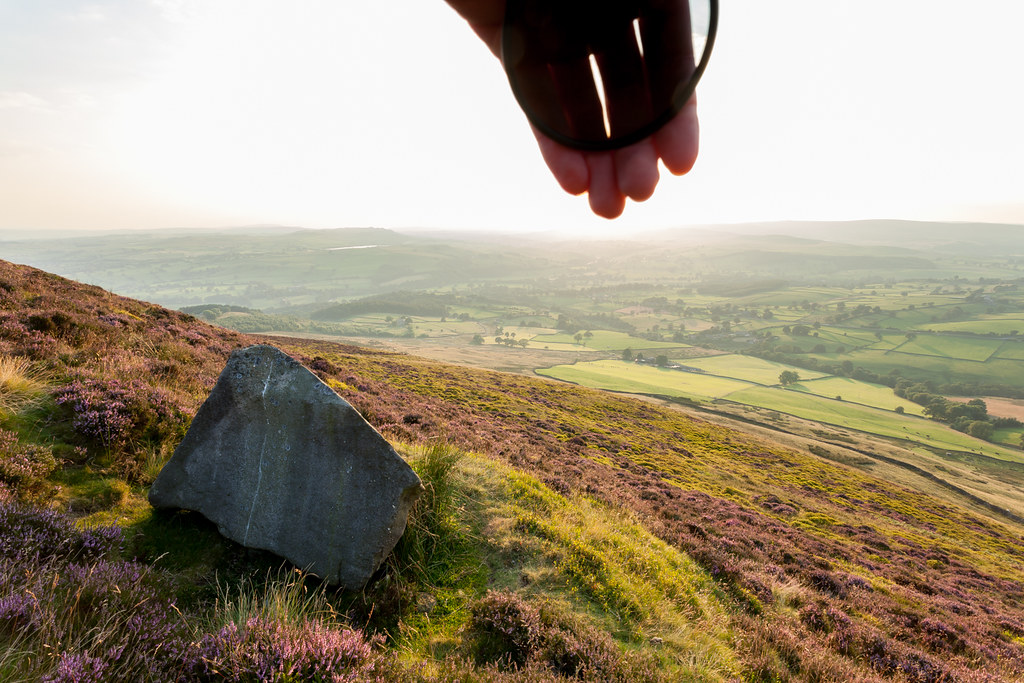
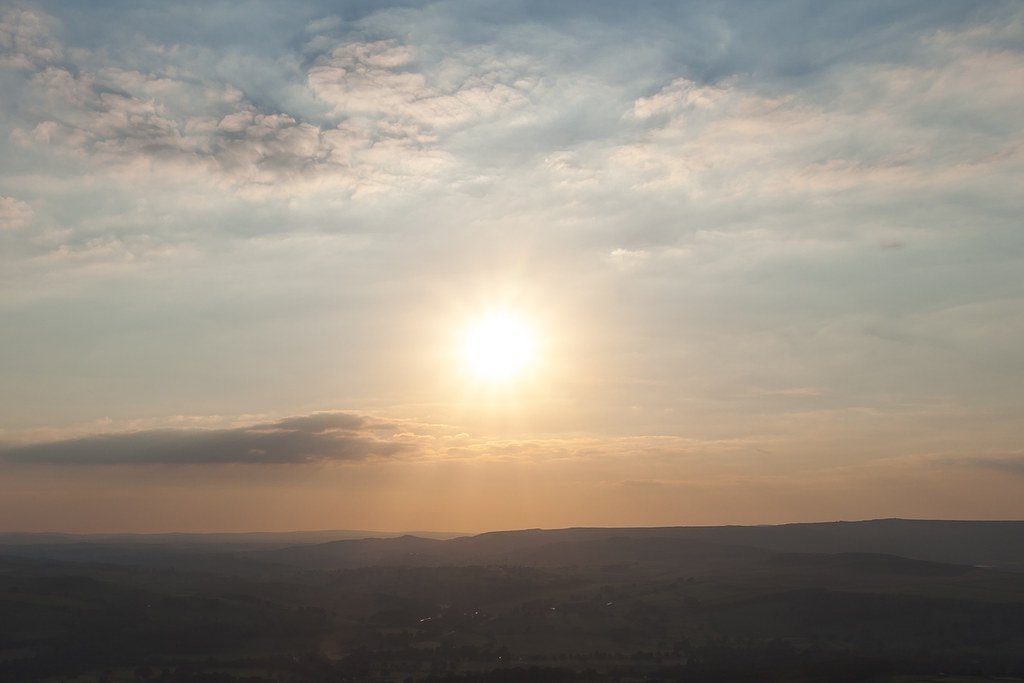
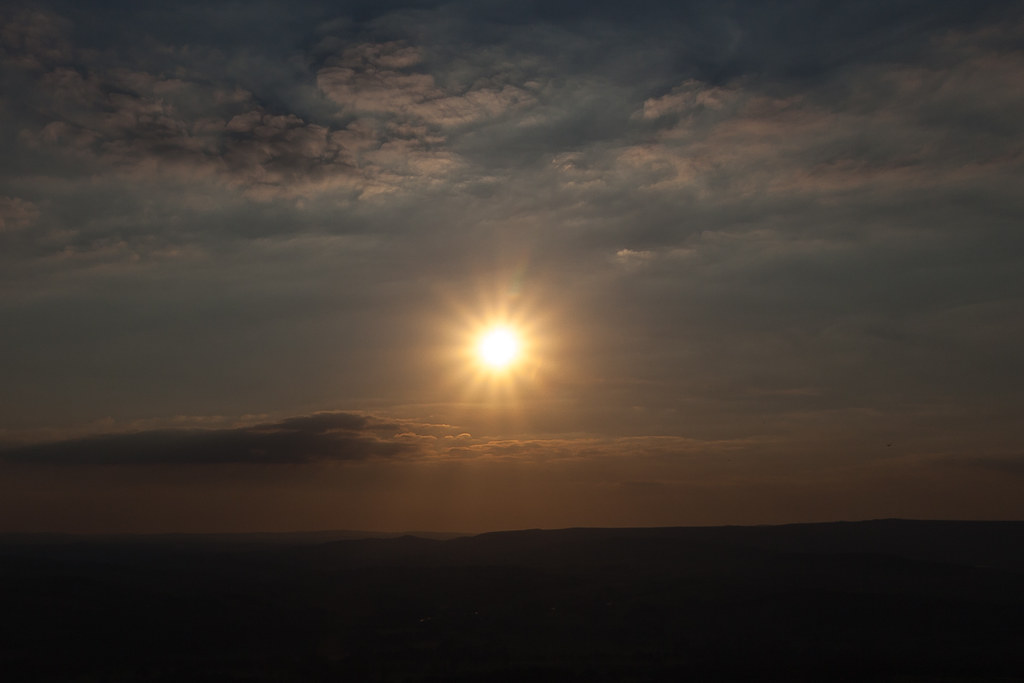
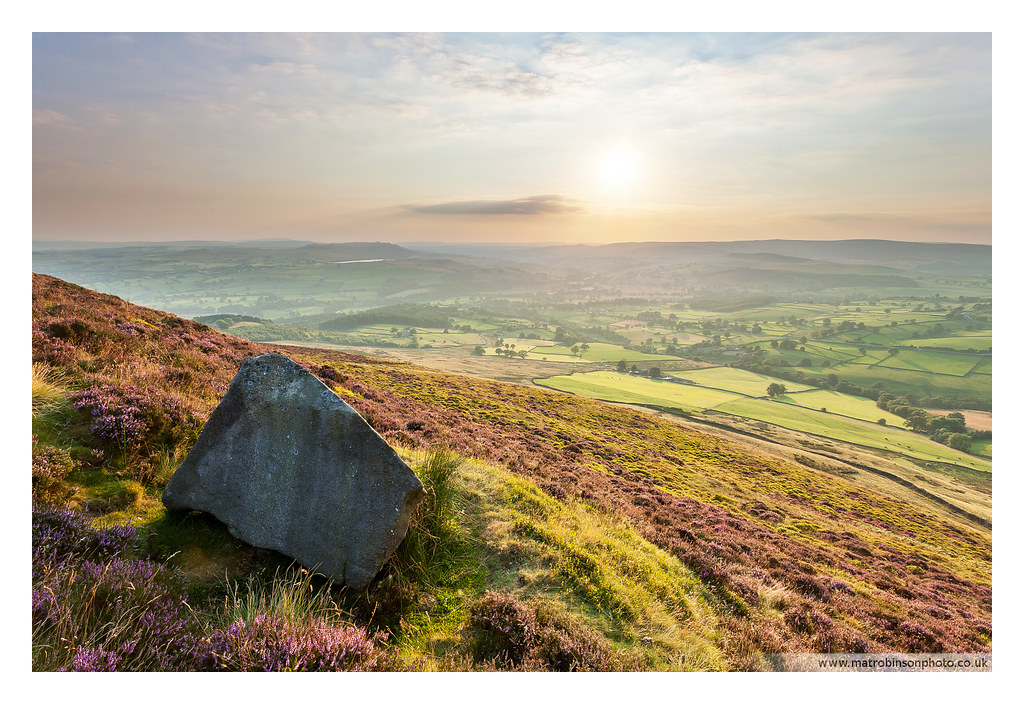
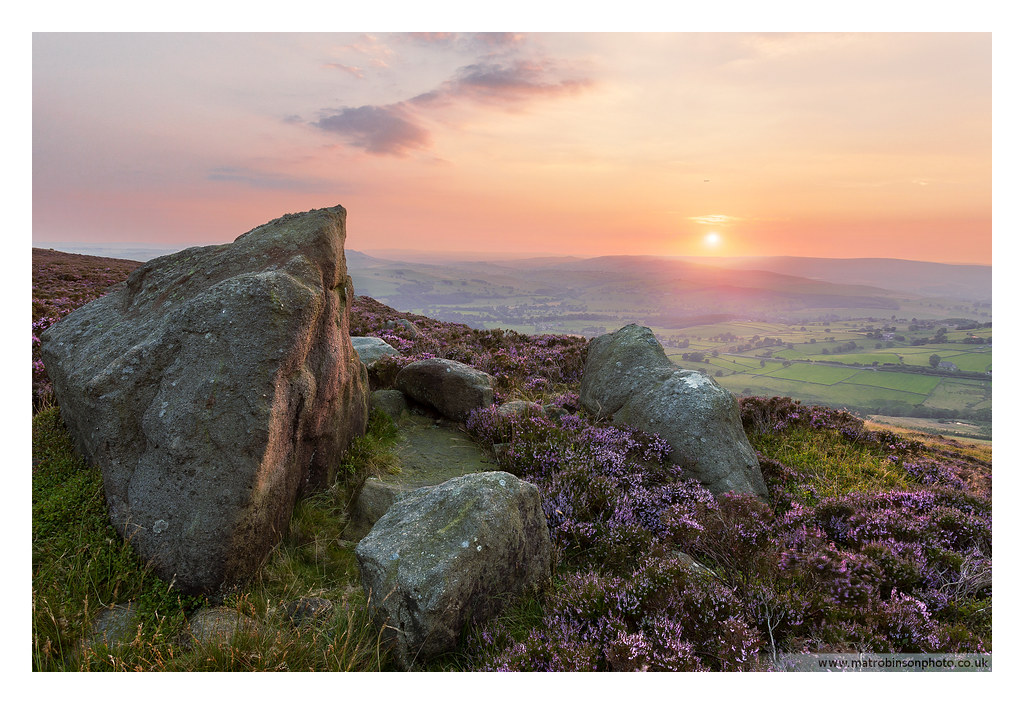
No comments:
Post a Comment